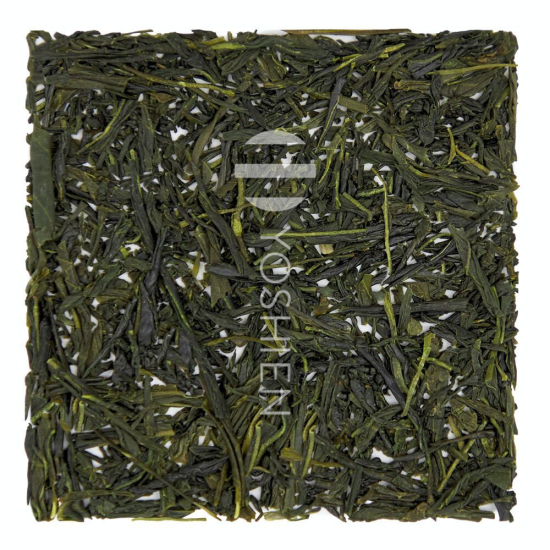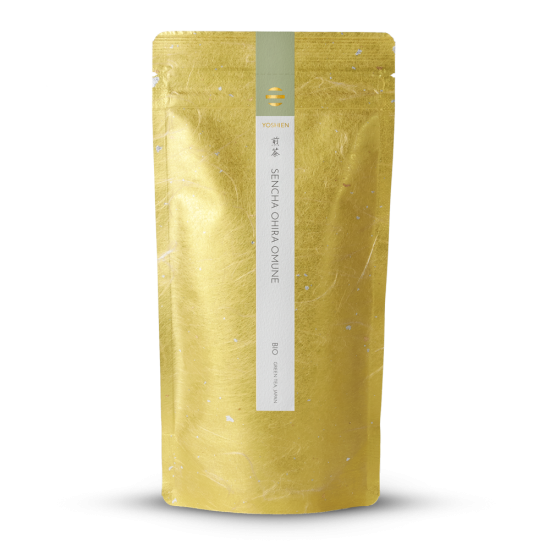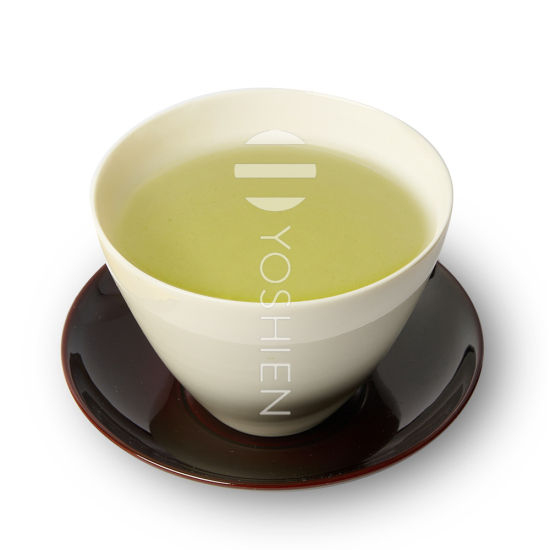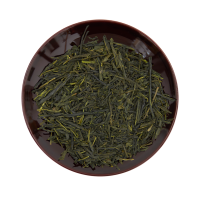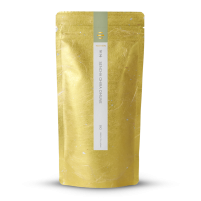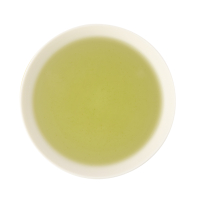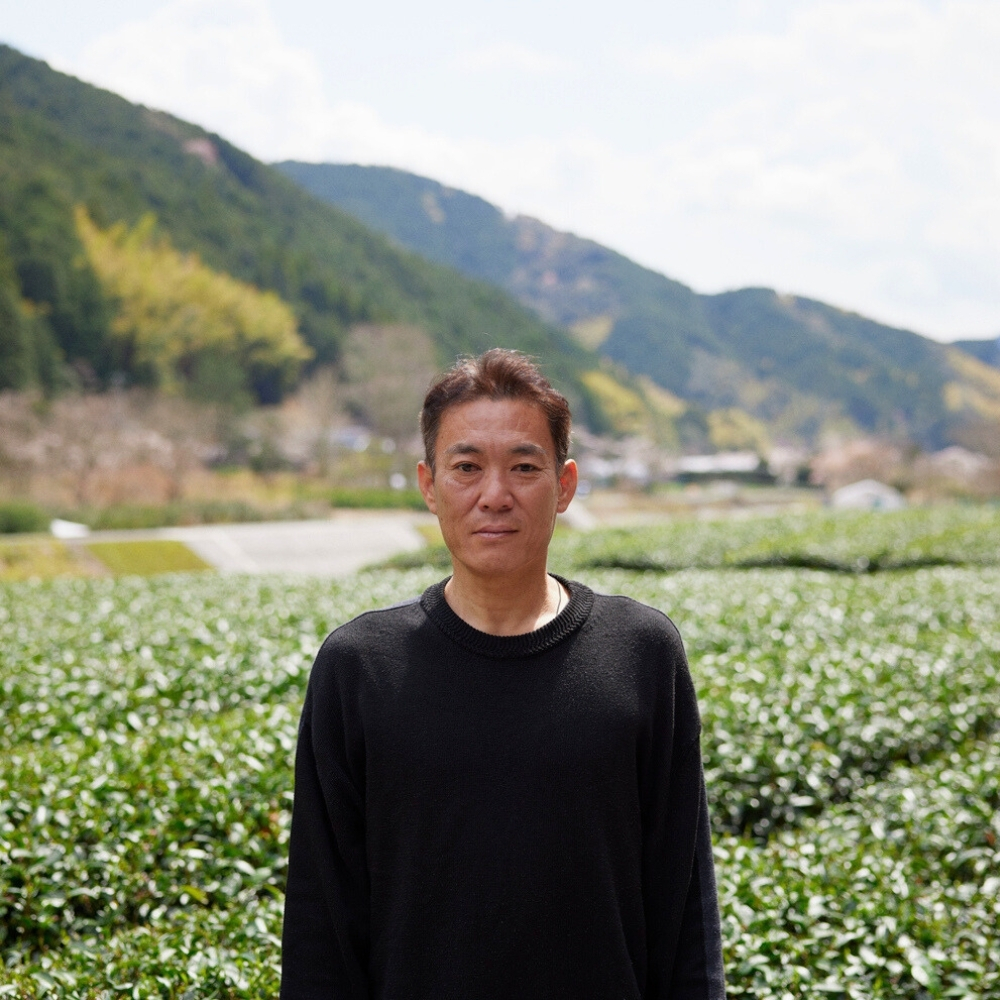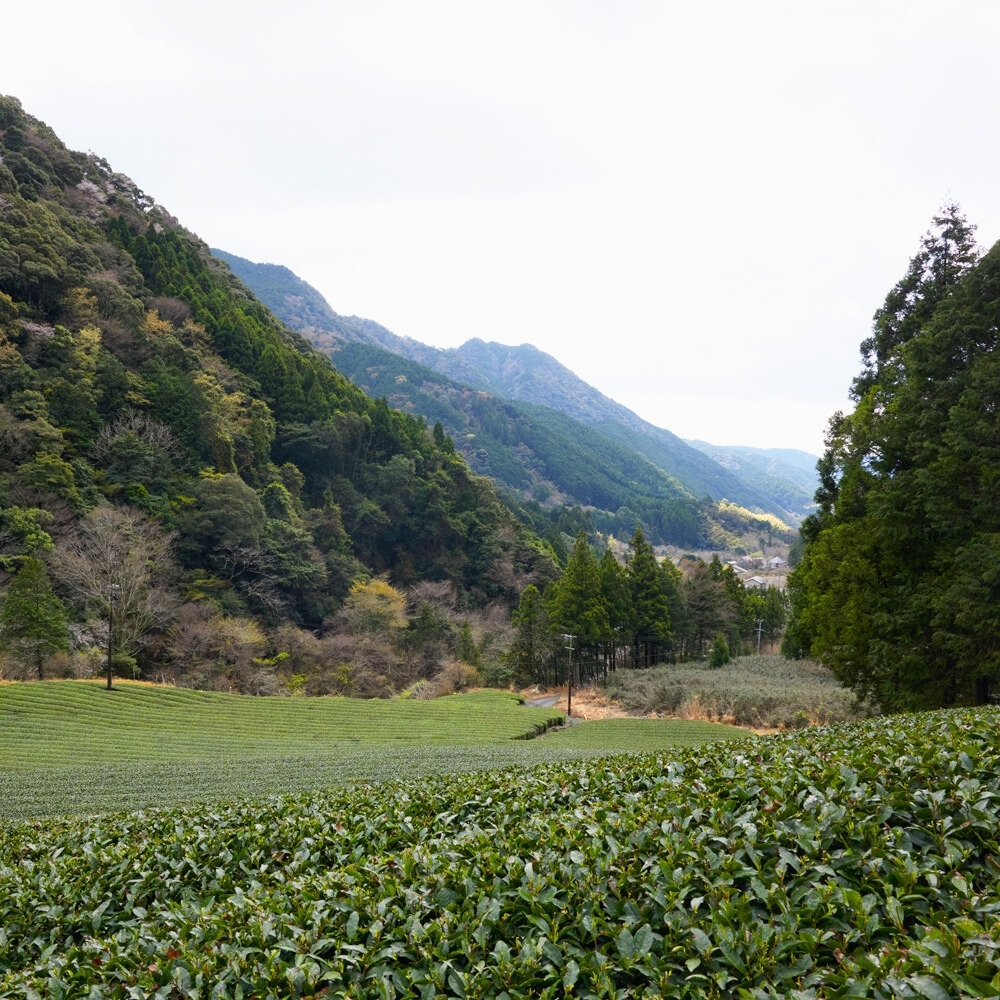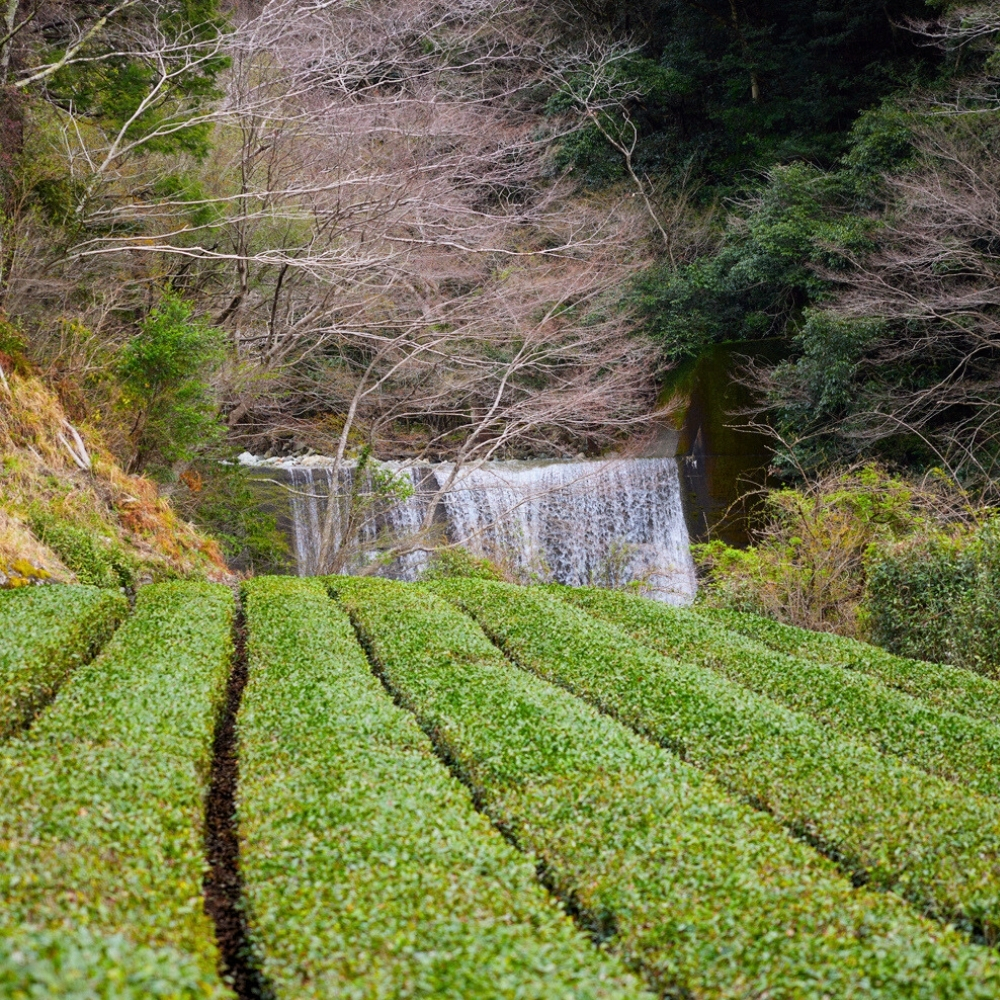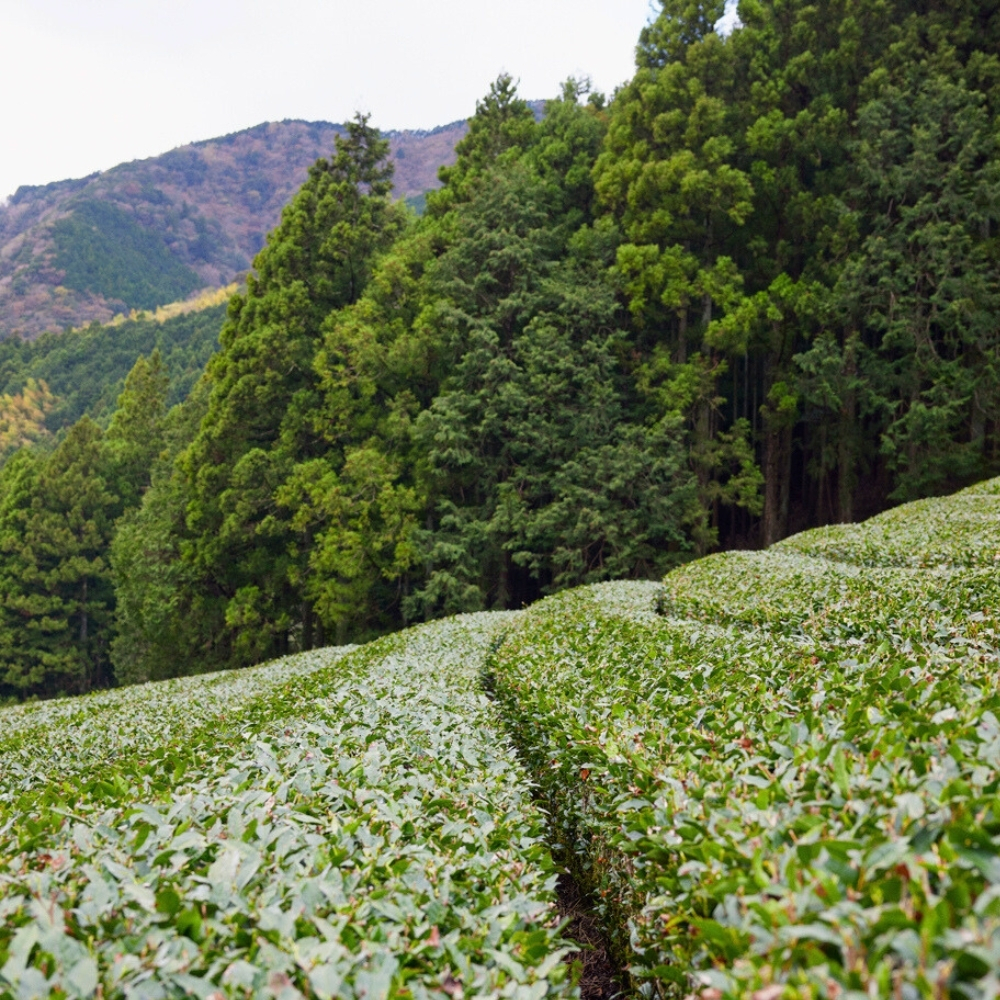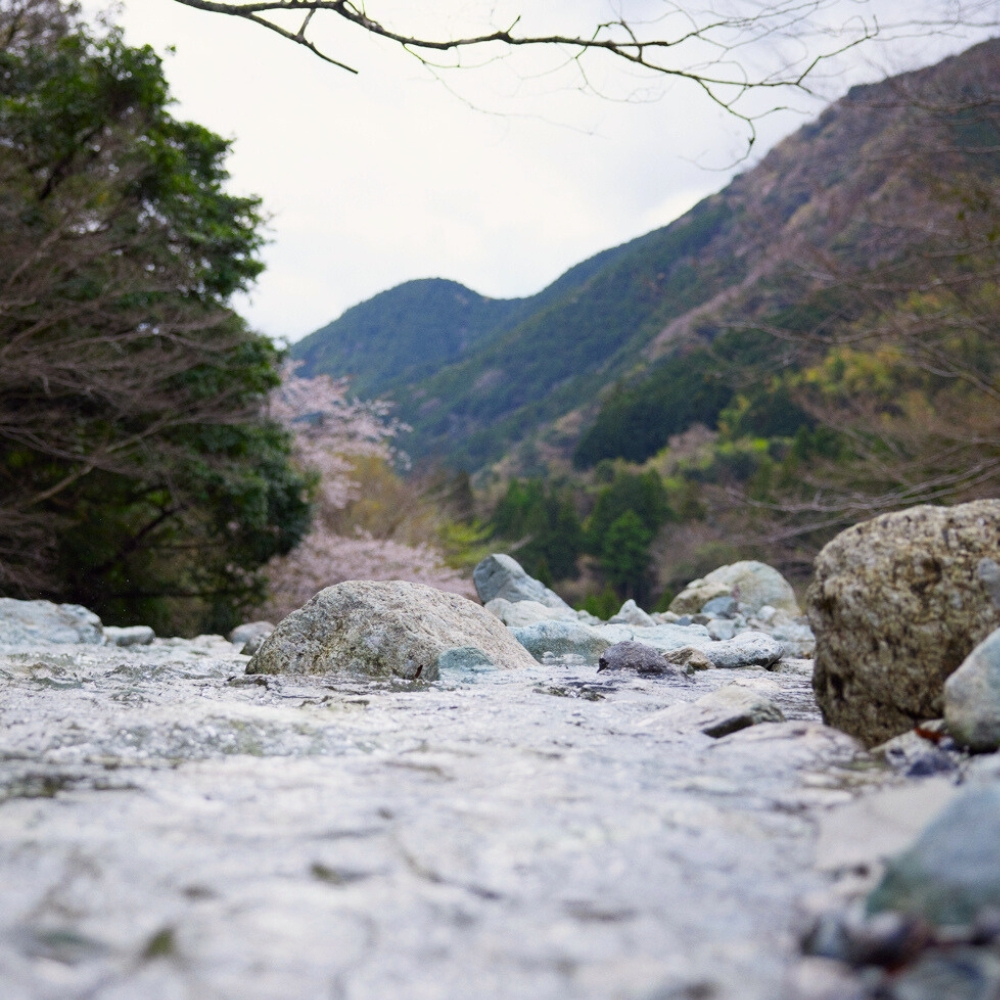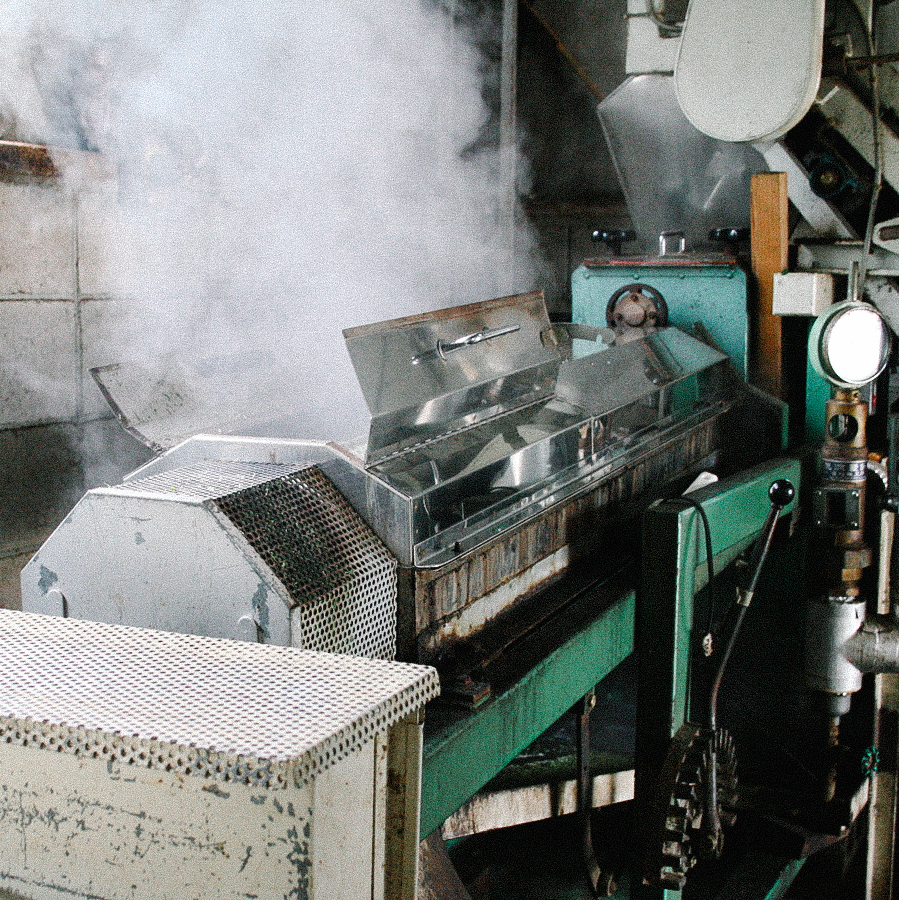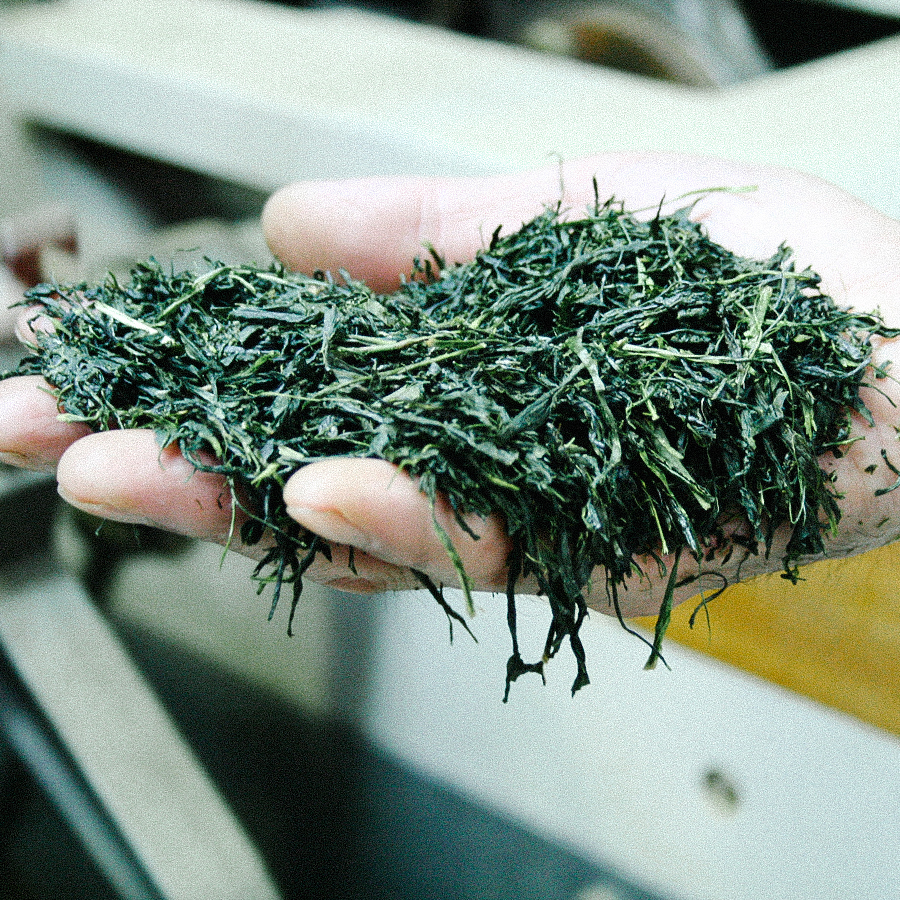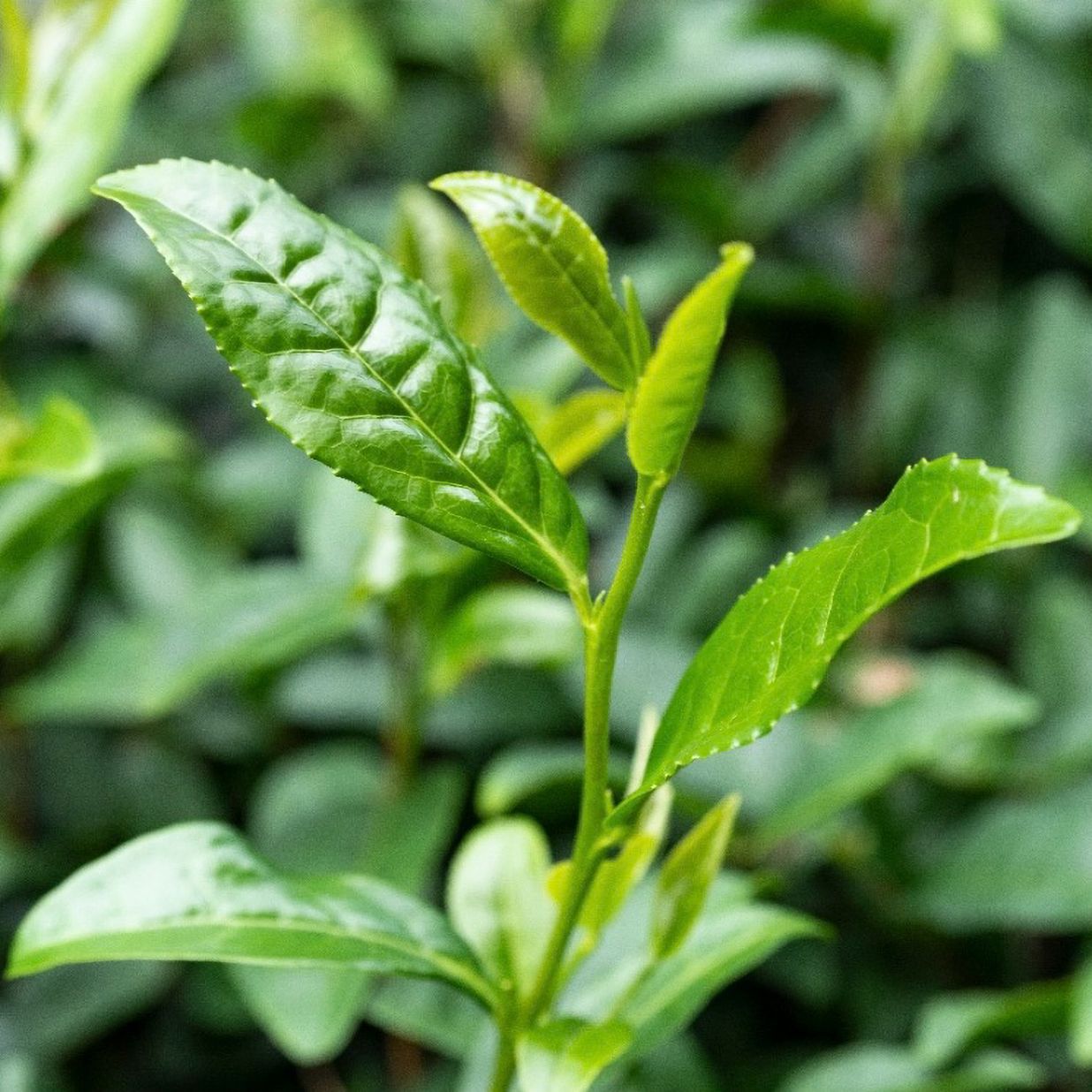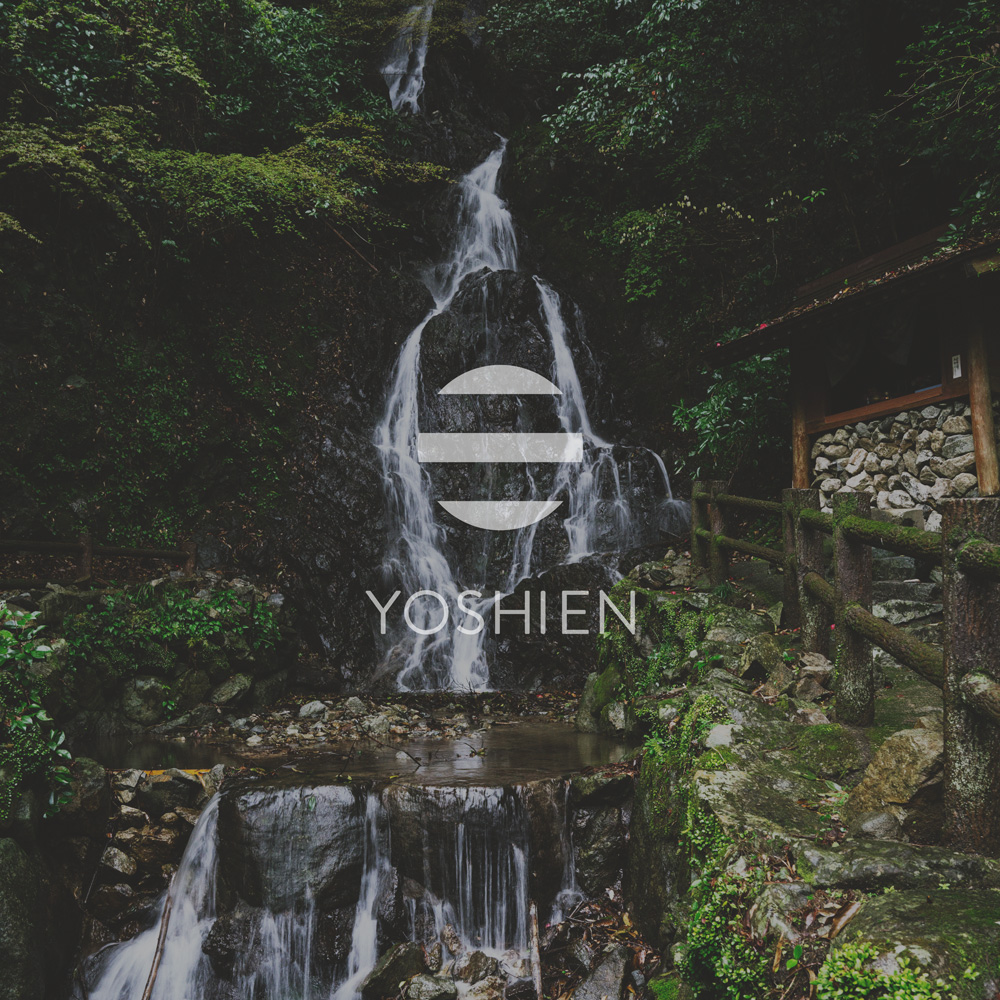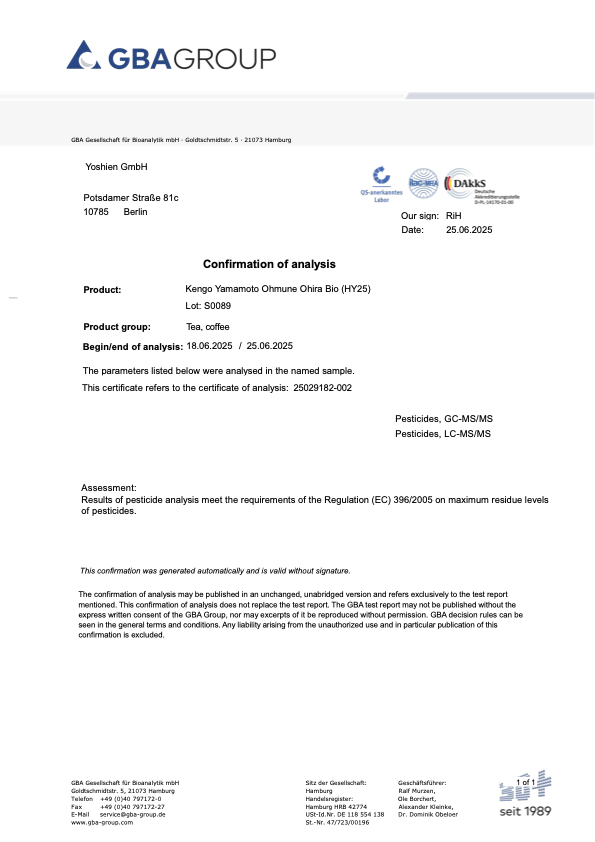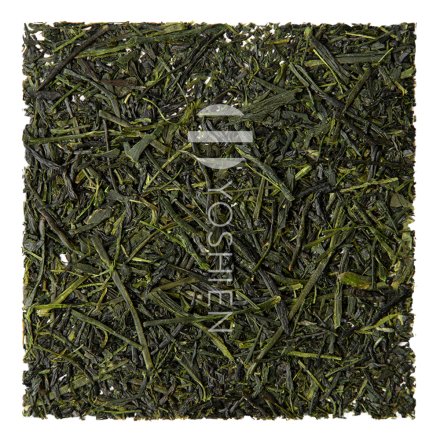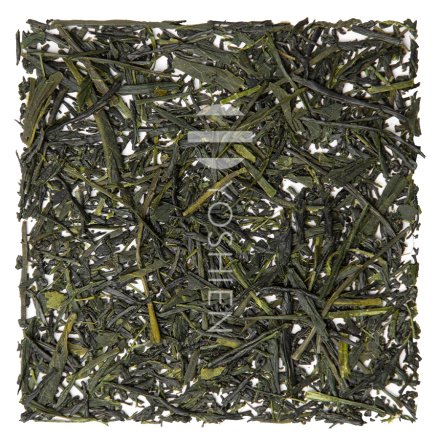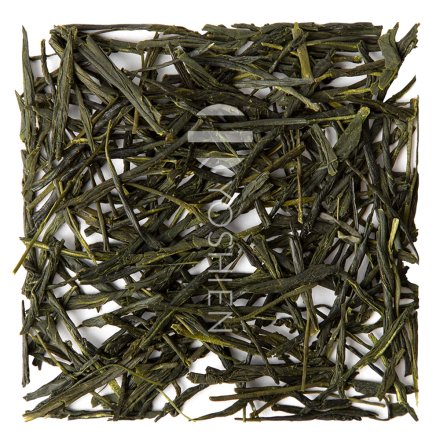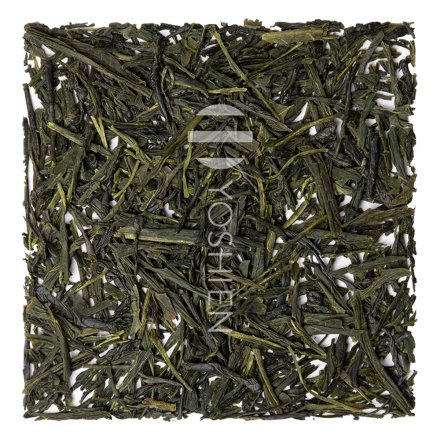Special features in location, cultivation & processing
This tea comes from Ryōgouchi in Ohira, upstream of the Okitsugawa River – a place known in Japan as “the hidden village of fine green teas”. The tea fields lie in pristine mountain terrain, where the steep slopes bring dramatic differences between day and night temperatures, abundant fresh spring water, and a frequent veil of fog. The fertile, reddish mountain soil nourishes the plants with an abundance of minerals, imparting them with vitality and contributing to their classic Shizuoka mountain character. Harvesting here is carried out with care using hand-operated machines, as larger machinery is impossible to use on the steep slopes.
Single Origin
This tea comes 100% from the above-mentioned tea field in Shizuoka, sourced directly from the tea farmer.
Organic Certification

PL-EKO-01
Nicht-EU-Landwirtschaft



